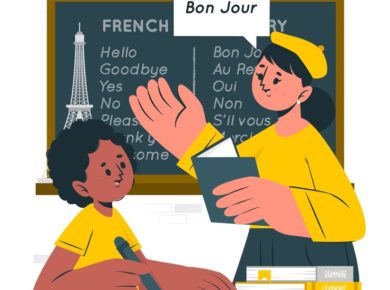Should a teacher befriend her students? Teacher-student friendship is a long-standing debate, and no one has ever reached a decisive conclusion on this ongoing debate. As every student, and his learning curve is unique, so is every teacher and her teaching methods. To some, managing the learning graph of their students is easy by being friends with them.
For others, they are comfortable maintaining a respectable distance from their students. If you too are looking for an answer to this teacher student friendship dilemma, we try to make things clear for you.
In this post, we bring you the pros and cons of teacher student friendship so that you can make an educated judgment. So, without further ado, let’s dive into the debate!
The big debate – To be or not to be
Teachers are not robots and it is natural for them to develop affinity toward their students. However, taking this affinity to the next stage of friendship may or may not be advisable. It depends upon the disposition of the student and teacher and circumstantial factors.
Pros – why a teacher should be friends with her students
As social creatures, sometimes we tend to associate with people without making a conscious effort. This can happen in a student and teacher relationship as well. Here are some advantages of being friends with your students.
Better students’ and teachers’ performance
With teacher student friendship, students feel at ease around you and are more likely to come to you with their learning gaps. You’ll be able to communicate with kids and explain concepts to them more effectively if you can understand where they lack. Besides, you too feel comfortable around them, thus making it easier for you to deliver your lessons.
Enhances students engagement
The best learning happens when a student himself is engaged in his learning process. Teacher student friendship can foster student engagement in the classroom. In such a scenario, the student actively participates in classroom activities and is interested in what is happening in the classroom. Thus, they are more engaged in the classroom.
The trust factor for better teacher student friendship
When you are friends with your students, they are more likely to trust you and listen to you. This is especially beneficial when your students are teenagers. This is the age when most kids are prone to going wayward. Your friendship and not your teacher’s education will help you understand what they are going through and provide them with timely help.
Teachers can learn from students as well
Students at the tertiary level range in age from being younger than their professors or teachers to, in some situations, being old enough to be the teacher’s father. Most of the time, students who are in the teacher’s age range or even older are mature and respect authority.
They can easily see and accept the limitations of their friendship with the speaker as a result. Since these pupils will have years of expertise, you can learn more from them than from your teacher education textbooks.

Cons – why a teacher shouldn’t be friends with her students
Teacher-student friendship makes it easier for students to relate to you, but it also lowers their respect for you. You are merely seen as a peer, and even then, students who don’t follow your directions assume there won’t be any repercussions.
The problem of getting partial
As we are tempted to judge in favor of our friends, maintaining objectivity becomes difficult. Teachers are in charge of several students’ academic performance. This includes marking their homework and completing assessments. When a student is your friend, it can be difficult to grade them, especially if they have not performed well. This can create a conflict between students and teacher.
A few teachers simply opt to maintain a professional relationship with their students. Sometimes, one needs to administer a bitter pill for the greater good of a child. This is not easy when the student sees you as a friend. This may ruin your relationship. Therefore it is better to maintain a healthy distance between student and teacher.
Friends may demand favors
Imagine a situation in which a teacher hangs out with a student after school and, for some reason, owes the kid a favor. It is anticipated that the favor will be returned, and the student may ask that at school. A manipulative grade or extra time for submission for an assignment can be expected to jeopardize teacher-student friendship.
Class management can be a trouble
Students will begin pushing you and testing you as soon as they sense that you are a cool teacher. Additionally, you’ll probably find yourself in a confrontation with one or more pupils determined to seize control of the classroom from you. Your buddy-management approach will cause your students to frequently disregard your authority. Since student and teacher are friends, students will believe that the class rules don’t apply to them.
To ensure that you are approachable, and your students feel comfortable around you while also respecting your authority as a teacher, you must strike a balance between strictness and friendliness. Student and teacher must know the boundaries of their friendship.
It is in the best interest of both student and teacher to maintain a friendly, yet professional relationship. You can maintain a healthy teacher student friendship, yet professionally offer your online courses and study materials to students using a customized app created by the Classplus team.
Teachers can keep track of attendance, assess their students, maintain payment records of all students, and even obtain data-collated report cards for their students. By using our services, you can concentrate on your teaching without having to spend time managing your class.




